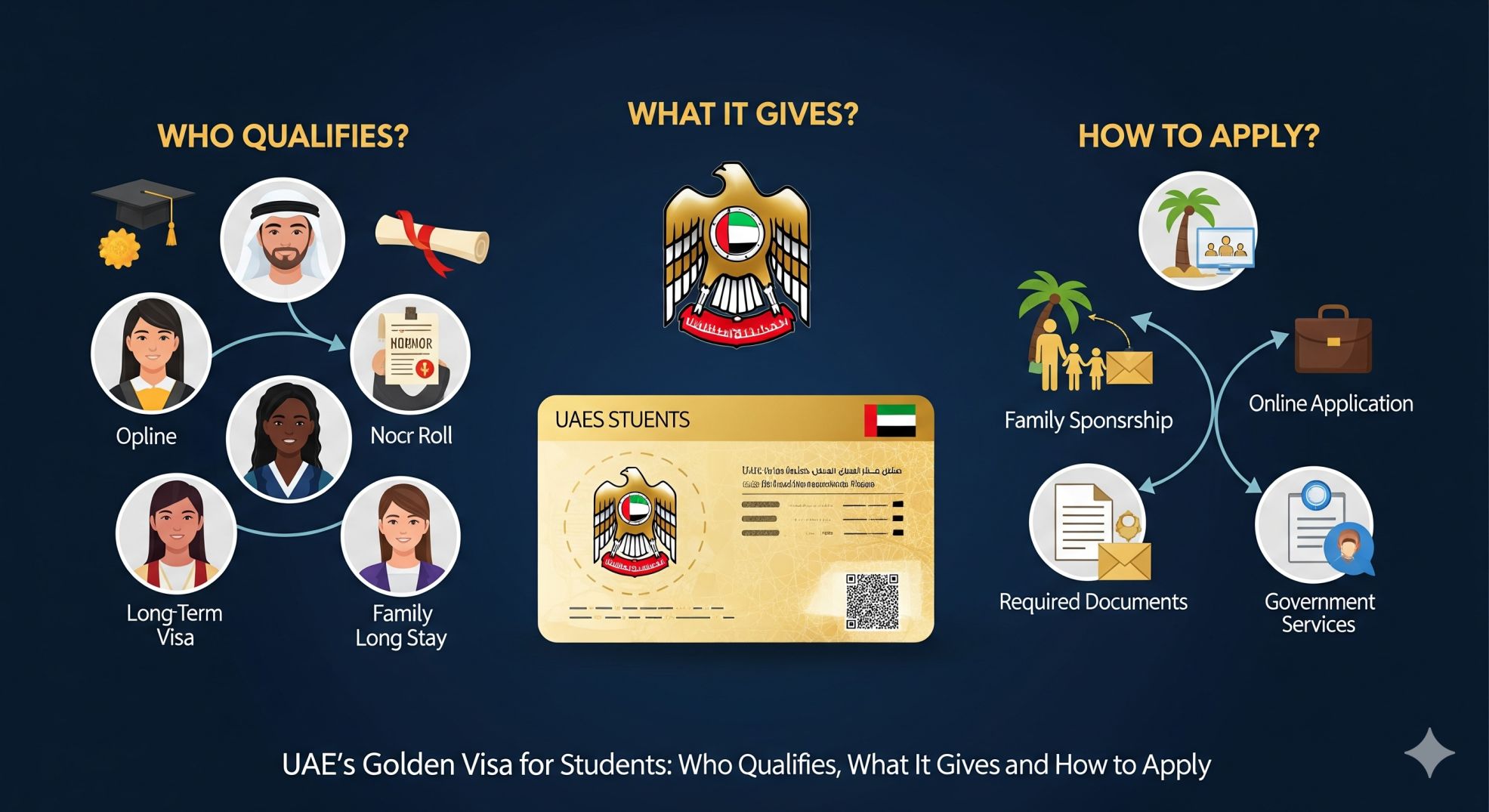Abu Dhabi/Dubai — The United Arab Emirates offers a “Golden Visa” scheme that grants long-term residency to exceptional students and recent graduates as part of a broader drive to attract and retain talent for its knowledge-driven economy. The programme spans several categories and is administered through federal and emirate-level authorities, with benefits that include long-term residence without the need for a national sponsor and the ability to sponsor family members.
High-achieving high-school students who graduate from UAE schools with top marks are eligible for a student Golden Visa; federal guidance and some emirate portals note a five-year residency option for outstanding secondary-school graduates who meet strict academic thresholds and supporting documentation requirements. Selection or nomination by education authorities is often part of the process in emirates that run targeted student programmes.
University graduates are covered under a separate top-students category: outstanding graduates from UAE universities — and in many cases from internationally recognised foreign institutions — can qualify for long-term residency that is typically issued for up to 10 years. Eligibility commonly depends on high grade-point averages, degrees in priority fields (science, engineering, medicine, technology and other strategic areas) or graduation from top-ranked universities; specific thresholds and documentary proof vary by emirate and the issuing authority.
The core benefits of the Golden Visa for students and graduates include longer, renewable-or-long-term residency (depending on the category), freedom from employer sponsorship while in the UAE, and the right to sponsor immediate family members — advantages that aim to give talented young people stability while they study, work or launch careers locally. Federal guidance highlights the visa’s role in enabling talent to live, work or study in the UAE with a range of privileges tied to long-term residency.
How to qualify and apply: applicants must supply certified academic transcripts or diplomas, a recommendation or nomination where required (for example from the Ministry of Education or a university), proof of graduation within a specified recent period, a valid passport and other identity documents, plus any emirate-specific forms or attestations. The practical application steps — from completing the relevant online service to submitting attachments and paying fees — are handled through the ICP/GDRFA portals or the emirate’s long-residency pages; authorities review documentation and decide eligibility according to the category rules. Prospective applicants should consult the official ICP/u.ae portals or their emirate’s residency service for the precise checklists and digital application links.
Because rules and documentary requirements can differ between emirates and are occasionally updated, students and parents are advised to verify criteria with the official federal portal and the relevant emirate authority before applying; reputable local government pages and recent reporting summarise current practice but do not replace the official service pages.










